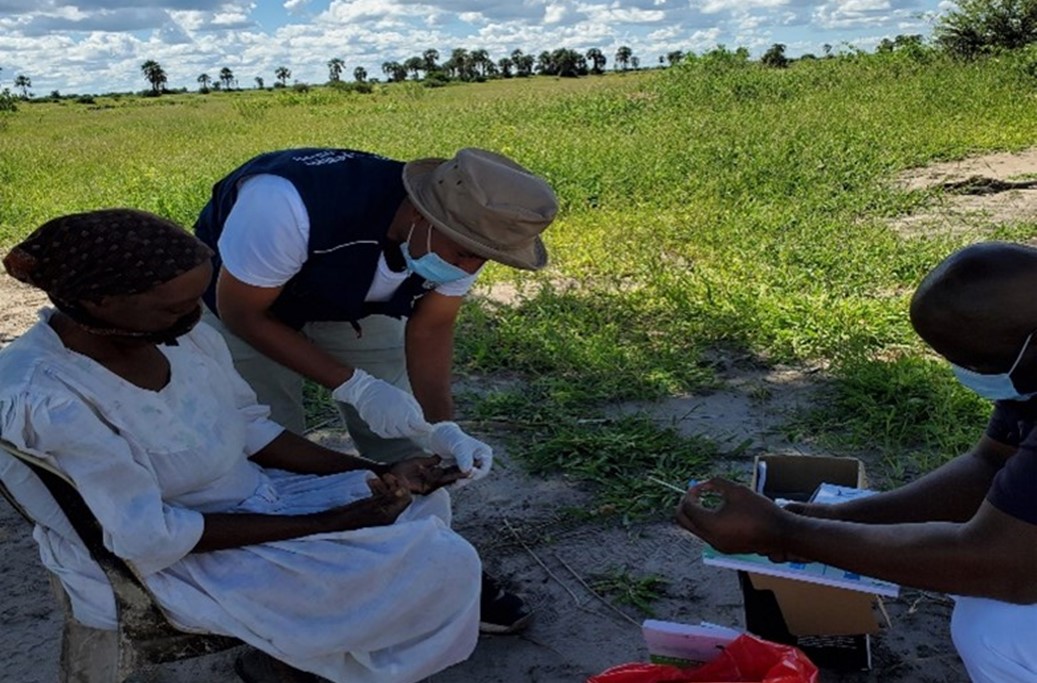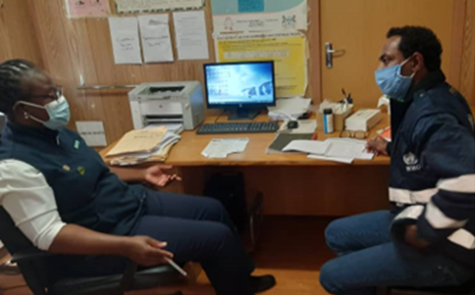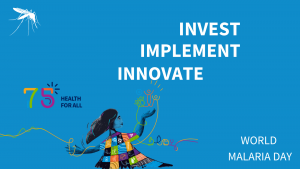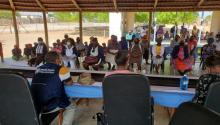Road towards eliminating malaria, continued collaboration between WHO and Botswana
“I was unconscious, with severe headache and fever. Three days later, my family and I realized it was malaria after being tested at a nearby health post.” A community member of Mogotho Village from Okavango, one of Botswana’s most malarious districts explained his ordeal at the hands of the disease. “I almost died," he added as he remembered how the disease affected his body. Aged 77, the man described how he contracted malaria after being bitten by a mosquito outside his home in Okavango District. Fortunately, due to country and global malaria elimination initiatives put in place by the government of Botswana together with WHO, he was able to receive treatment against the disease, saving his life.

and Tubu Villages in Okavango District
Malaria is a life-threatening disease caused by parasites that are transmitted to people through the bites of infected female Anopheles mosquitoes. The disease which has a high death rate is preventable and curable however continues to claim lives in Africa with millions of deaths reported each year. In Botswana, malaria is one of the major health risks, with over three-quarters of the country’s geographical space classified as at risk of malaria infection.
The Government of Botswana, with the support of development partners and other stakeholders, has made significant strides towards the elimination of malaria in the country. In 2021, despite disruptions caused by the COVID-19 pandemic and in line with WHO’s Global Technical Strategy for Malaria 2016–2030, Botswana recorded a 93% reduction in malaria cases. This achievement was a direct result of continued intensified efforts to ensure access to evidence-based, targeted interventions aimed at interrupting malaria transmission as well as eliminating the malaria parasite from the population. Additionally, in 2020 Botswana committed to another WHO-led initiative, Malaria Elimination 2025 (E-2025), as part of a global initiative comprising 27 countries earmarked for the elimination of malaria by 2025. “Botswana was selected for E-2025 primarily because the country was able to constantly maintain the incidence of malaria at one case per thousand population since 2010. Even though progress towards elimination has not been smooth, I am content with several investments that Botswana has put in place to propel the malaria elimination agenda.” Dr Namboze the WHO Representative for Botswana commended at the World Malaria Day event 2022.
WHO Botswana Country Office continues to support the Government of Botswana to build the country’s capacity for case management as well as enable timely response to people in need of preventative and treatment measures against malaria. With staff located across the country to stop malaria, WHO strives to ensure that there is universal coverage to access malaria response in Botswana.
In Bobirwa, Palapye, Mahalapye, and Okavango, WHO provides support for malaria surveillance, case management, pandemic preparedness, and response. As part of the WHO Stop Malaria Initiative, two consultants were to Bobirwa and Okavango: two of the most malarious areas in Botswana. The primary objective of the initiative is to strengthen the sub-national technical and operational capacity of eliminating countries. The technical support is mainly focused on strengthening surveillance, investigating and classification of cases, identifying causes of transmission, and developing appropriate response strategies. Additionally, in 2019, WHO Botswana commenced the implementation of AFRO II integrated vector management which supported Bobirwa District with the deployment of malaria intervention including community empowerment on malaria preventative interventions.
"Greater Selebi Phikwe District is benefiting from the WHO Officers in improving malaria surveillance indicators, early case detection, and response. WHO officers are also delivering good quality and high coverage vector control interventions, including capacity building for the district staff that leads to a remarkable reduction in the number of malaria cases in the district. Reaching zero malaria cases is an ambitious but achievable goal with the support of partners.’’ said Dr Kaite Mashini, Head of Disease Control and Prevention in Greater Selebi Phikwe District.


